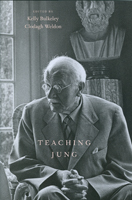Events
Your AAR staff continues to work toward holding the Annual Meeting in Boston, Nov. 21-24, 2020. We are aware of the uncertainty and contradictory projections related to the COVID-19 pandemic and with health and safety as a priority, we will continue monitoring the guidance of governments and health experts as we plan and make decisions. Should any changes need to be made related to the 2020 Annual Meeting, we will promptly notify you.
Open Registration:
All remaining regional meetings for 2020 have been canceled
|
Bulkeley, Kelly, and Clodagh Weldon, eds.

Description
Swiss psychologist Carl Jung (1875–1961) has made a major, though still contested, impact on the field of religious studies. Alternately revered and reviled, the subject of adoring memoirs and scathing exposés, Jung and his ideas have had at least as much influence on religious studies as have the psycho-analytic theories of his mentor, Sigmund Freud. Teaching Jung offers a collection of original articles presenting several different approaches to Jung’s psychology in relation to religion, theology, and contemporary culture. The contributors describe their teaching of Jung in different academic contexts, with special attention to the pedagogical and theoretical challenges that arise in the classroom. Many of Jung’s key psychological terms (archetypes, collective unconscious, individuation, projection, synchronicity, extroversion, and introversion) have become standard features of religious studies discourse, and his extensive commentaries on various religious traditions make it clear that Jung’s psychology is, at one level, a significant contribution to the study of human religiosity. His characterization of depth psychology as a fundamentally religious response to the secularizing power of modernity has left a lasting imprint on the relationship between religious studies and the psychological science.
Additional Information
-
Hardback
-
284 Pages
-
Published: December 2011
-
ISBN: 9780199735426
-
Series: Teaching Religious Studies
Ordering Information
|
